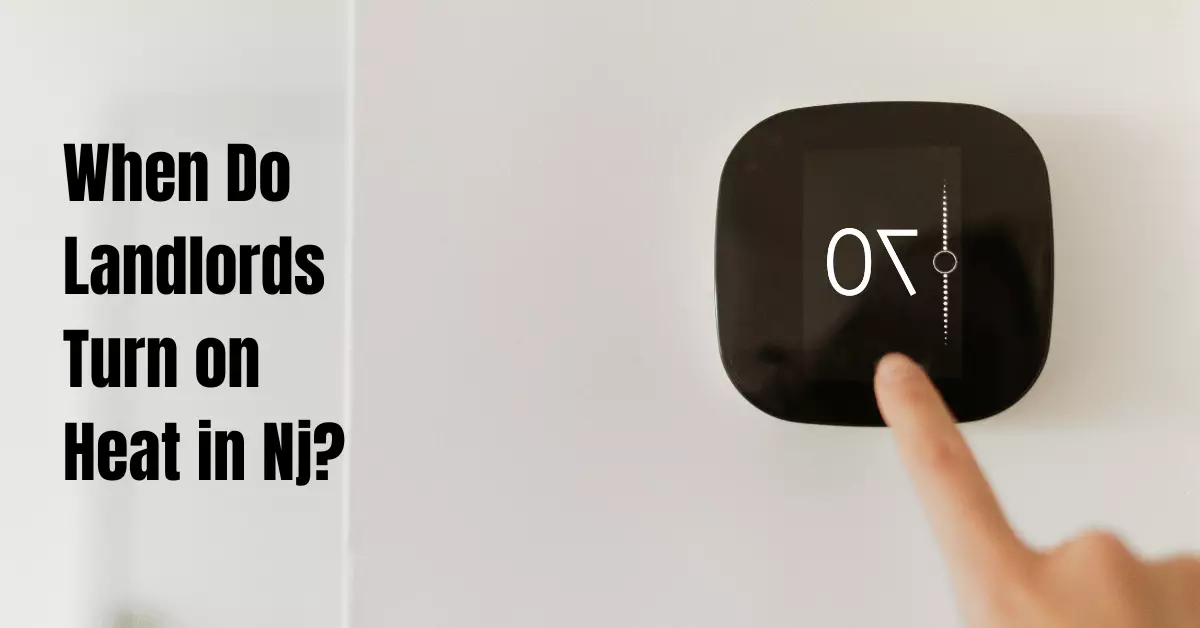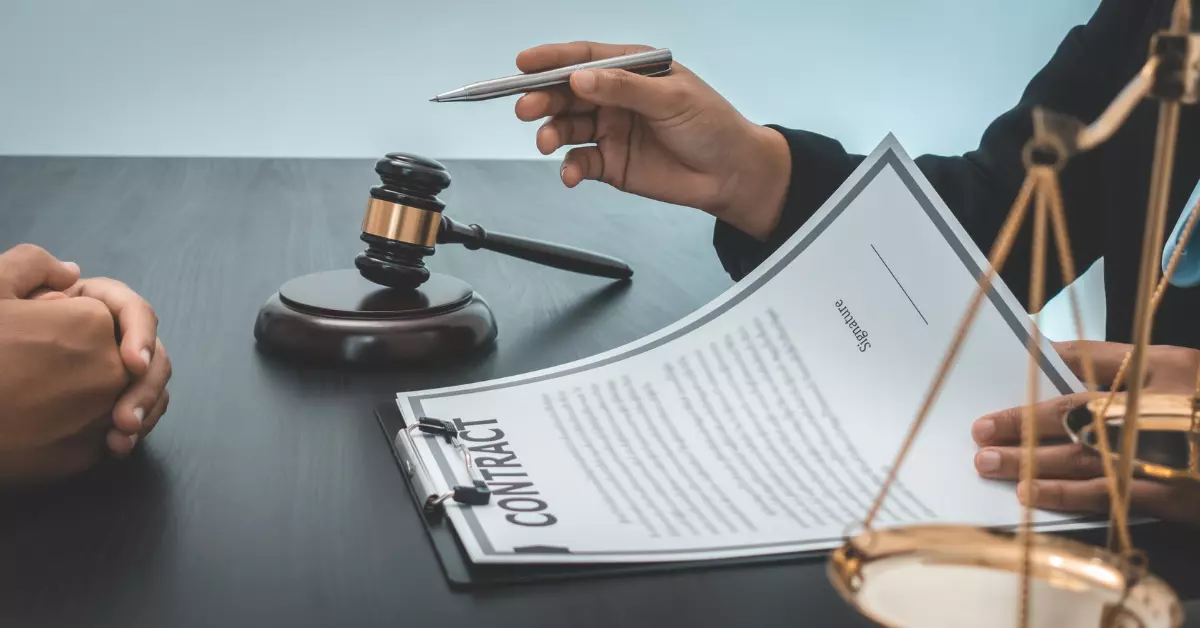Surviving the Cold: When Do Landlords Turn on Heat in Nj?
As temperatures start to dip during the fall months in new jersey, tenants begin to ask a common question: when do landlords turn on the heat?
Nj law requires landlords to provide heat during the colder months, usually from October 1st to May 1st, when indoor temperatures drop below a certain level, typically around 68 degrees Fahrenheit.
However, some landlords may choose to turn on the heat before or after these dates, depending on the weather.
It is important for tenants to communicate with their landlords to ensure that they are staying within the legal guidelines and keeping the property at a comfortable temperature.

The Legal Requirement For Heat In Nj Rental Units
As per new jersey law, landlords are required to provide heat to their tenants as a basic necessity during the winter season.
In NJ, it is mandatory for landlords to provide adequate heating to tenants from October 1st to May 1st.
The Minimum Temperature Required In Rental Units During The Heating Season
The heating system in NJ is regulated by the state’s sanitary code, which mandates specific minimum temperatures.
The minimum temperature in occupied rental units during the day must be 68 degrees Fahrenheit, while at night, it must be no less than 65 degrees Fahrenheit.
Landlords are required to maintain these temperatures regardless of the heating source used.
The Consequences For Landlords Who Fail To Provide Proper Heating
Landlords who fail to provide sufficient heat to tenants can face penalties and legal action. The nj department of community affairs (dca) handles complaints about rental housing conditions, which could lead to the issuance of a notice of violation.
If the landlord continues to violate the rental housing codes, the DCA can impose fines and take legal action, which may result in the landlord being prohibited from renting their property.
Remember, the laws regarding heating systems apply to all nj rental properties as part of the required maintenance of habitable living conditions for tenants.
It’s vital for landlords to comply with the requirements set by law to avoid financial and legal risk.
Exceptions To The Heat Provision Law
As a tenant in NJ, you have every right to assume that your landlord is responsible for creating a safe and comfortable living environment for you. When it comes to heating your rental unit, nj state law reflects this sentiment.
However, there are some exceptions to this law that you should be aware of as a tenant.

Specific Instances Where A Landlord Is Not Required To Provide Heat To Tenants
- If you rent a unit with its thermostat, your landlord is relieved of the responsibility for heating that particular unit. It is up to you to maintain the thermostat within reasonable temperature ranges.
- If the temperature outside isn’t cold enough (below 68 degrees Fahrenheit) during the heating season, then your landlord is not required to turn on the heat in your unit.
- If you rent a commercial property or a seasonal rental property (e.g. Beach house), your landlord is not required to provide heat to you.
Instances Where A Tenant May Be Responsible For Heating Their Rental Unit
- If you are renting a live/work space, you are responsible for heating the unit yourself.
- In some cases, the landlord may provide a space heater for you to use if you are responsible for heating the unit yourself.
- If you are staying in a vacation rental, you may be responsible for bringing your own space heater or warm clothing.
How Landlords And Tenants Can Navigate Exceptions To The Heat Provision Law
It’s important for both landlords and tenants to understand their rights and responsibilities regarding heating.
If you are a landlord, make sure to clearly communicate with your tenants about the heating situation in their unit. If you cannot provide heat, let the tenant know in advance so that they can prepare accordingly.
If you are a tenant and you believe your landlord is not meeting their responsibilities, contact them as soon as possible.
If you cannot come to an agreement, you can also file a complaint with the NJ Division of codes and standards.
Awareness and communication can help avoid disputes and make for a comfortable living environment for everyone involved.
Tips For Tenants To Prepare For Winter Weather
With winter comes icy winds and piercing cold, which can seriously threaten the warmth and comfort of your rental unit.
Fortunately, there are steps tenants can follow to keep their units well-insulated and ready for the winter chill. Here are some tips:
- Inspect all doors and windows for gaps or other signs of damage that may let cold air seep in, and make any necessary repairs.
- Check for proper weatherstripping around doors and windows, and replace it if needed.
- Use window plastic film to cover windows to add an extra layer of protection against cold drafts.
- Place draft stoppers at the bottom of doors to prevent cold air from penetrating into your room.
- Use thermal curtains and hang them tightly to reduce heat loss.
What Tenants Should Do If They Experience Insufficient Heating In Their Rental Units
Many tenants may experience insufficient heating in their rental units, which can make them feel uncomfortable during cold weather.
Therefore, it is necessary to know what you should do in such situations. Here are some steps tenants can take:
- Contact your landlord or property management immediately to report the issue.
- Check for any blown fuses or tripped circuit breakers that may be affecting your heating system.
- Make sure that the thermostat is set correctly to the desired temperature.
- Find alternative ways to heat your apartment, such as using a space heater or electric blanket.
- If there are still issues with insufficient heating, understand your legal rights to ensure that your landlord provides you with proper heating.

Some Common Mistakes Tenants Make When Trying To Keep Warm During Cold Weather Months
Tenants often make common mistakes when trying to stay warm during the cold weather months. These errors may negatively impact tenants’ comfort and lead to high utility bills. Here are some errors to avoid:
- Cranking up your thermostat higher than needed can lead to overconsumption of energy, making your heating system work harder, and causing higher utility bills.
- Neglecting to seal off drafts can allow cold air inside, which can impact the efficiency of heating.
- Placing space heaters too close to flammable materials can lead to fire hazards.
- Reducing or blocking the airflow from your heating vents can lead to an inefficient heating system. Do not place any furniture or obstructive blockages near heating vents.
- Forgetting to change furnace filters can restrict airflow, making your heating system less effective. Change furnace filters monthly during winter weather months.
Frequently Asked Questions Of When Do Landlords Turn On Heat In Nj?
What Is The Average Temperature Inside A Rental Property During Winter In Nj?
Landlords in NJ are required to maintain a minimum temperature of 68 degrees Fahrenheit inside rental properties during winter.
Can Landlords Turn Off The Heat During Winter In Nj?
No, landlords are not allowed to turn off the heat during winter in nj. They are legally required to provide heat throughout the winter season.
Is There A Specific Date When Landlords In Nj Must Turn On The Heat?
There is no specific date for landlords in NJ to turn on the heat. They must provide ample heat throughout the winter season.
What Should Tenants Do If Landlords Fail To Turn On The Heat During Winter In Nj?
Tenants in NJ should contact their landlords and inform them of the heating problem. If the issue persists, they may file a complaint with their local housing authority.
Conclusion
Dancing with New Jersey’s chill isn’t your responsibility. In NJ, your landlord must flip the heat switch when temperatures drop to 55 degrees or lower at night.
Remember, it’s not just your comfort, it’s your right. Know your lease, stand your ground, and stay cozy.